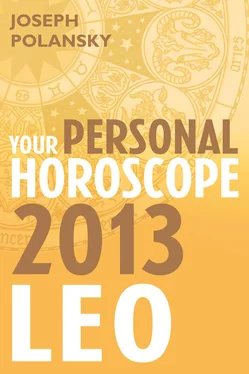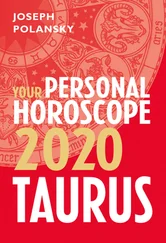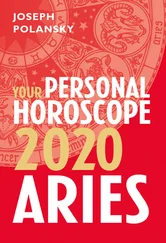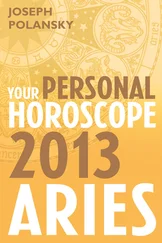8th House: Transformation and Regeneration
9th House: Religion, Foreign Travel, Higher Education and Philosophy
10th House: Career
11th House: Friends, Group Activities and Fondest Wishes
12th House: Spirituality
Karma
Karma is the law of cause and effect which governs all phenomena. We are all where we find ourselves because of karma – because of actions we have performed in the past. The universe is such a balanced instrument that any act immediately sets corrective forces into motion – karma.
Long-term Planets
The planets that take a long time to move through a sign show the long-term trends in a given area of life. They are important for forecasting the prolonged view of things. Because these planets stay in one sign for so long, there are periods in the year when the faster-moving (short-term) planets will join them, further activating and enhancing the importance of a given house.
Jupiter: stays in a sign for about 1 year
Saturn: 2½ years
Uranus: 7 years
Neptune: 14 years
Pluto: 15 to 30 years
Lunar
Relating to the Moon. See also ‘Phases of the Moon’, below.
Natal
Literally means ‘birth’. In astrology this term is used to distinguish between planetary positions that occurred at the time of a person’s birth (natal) and those that are current (transiting). For example, Natal Sun refers to where the Sun was when you were born; transiting Sun refers to where the Sun’s position is currently at any given moment – which usually doesn’t coincide with your birth, or Natal, Sun.
Out of Bounds
The planets move through the zodiac at various angles relative to the celestial equator (if you were to draw an imaginary extension of the Earth’s equator out into the universe, you would have an illustration of this celestial equator). The Sun – being the most dominant and powerful influence in the Solar system – is the measure astrologers use as a standard. The Sun never goes more than approximately 23 degrees north or south of the celestial equator. At the winter solstice the Sun reaches its maximum southern angle of orbit (declination); at the summer solstice it reaches its maximum northern angle. Any time a planet exceeds this Solar boundary – and occasionally planets do – it is said to be ‘out of bounds’. This means that the planet exceeds or trespasses into strange territory – beyond the limits allowed by the Sun, the Ruler of the Solar system. The planet in this condition becomes more emphasized and exceeds its authority, becoming an important influence in the forecast.
Phases of the Moon
After the full Moon, the Moon seems to shrink in size (as perceived from the Earth), gradually growing smaller until it is virtually invisible to the naked eye – at the time of the next new Moon. This is called the waning Moon phase, or the waning Moon.
After the new Moon, the Moon gradually gets bigger in size (as perceived from the Earth) until it reaches its maximum size at the time of the full Moon. This period is called the waxing Moon phase, or waxing Moon.
Retrogrades
The planets move around the Sun at different speeds. Mercury and Venus move much faster than the Earth, while Mars, Jupiter, Saturn, Uranus, Neptune and Pluto move more slowly. Thus there are times when, relative to the Earth, the planets appear to be going backwards. In reality they are always going forward, but relative to our vantage point on Earth they seem to go backwards through the zodiac for a period of time. This is called ‘retrograde’ motion and tends to weaken the normal influence of a given planet.
Short-term Planets
The fast-moving planets move so quickly through a sign that their effects are generally of a short-term nature. They reflect the immediate, day-to-day trends in a horoscope.
Moon: stays in a sign for only 2½ days
Mercury: 20 to 30 days
Sun: 30 days
Venus: approximately 1 month
Mars: approximately 2 months
T-square
A T-square differs from a Grand Square in that it is not a complete square. If you look at the pattern in a chart it appears as ‘half a complete square’, resembling the T-square tools used by architects and designers. If you cut a complete square in half, diagonally, you have a T-square. Many astrologers consider this more stressful than a Grand Square, as it creates tension that is difficult to resolve. T-squares bring learning experiences.
Transits
This refers to the movements or motions of the planets at any given time. Astrologers use the word ‘transit’ to make the distinction between a birth or Natal planet (see ‘Natal’, above) and the planet’s current movement in the heavens. For example, if at your birth Saturn was in the sign of Cancer in your 8th house, but is now moving through your 3rd house, it is said to be ‘transiting’ your 3rd house. Transits are one of the main tools with which astrologers forecast trends.
THE LION
Birthdays from
21st July to
21st August
Personality Profile
LEO AT A GLANCE
Element: Fire
Ruling Planet: Sun
Career Planet: Venus
Love Planet: Uranus
Money Planet: Mercury
Planet of Health and Work: Saturn
Planet of Home and Family Life: Pluto
Colours: gold, orange, red
Colours that promote love, romance and social harmony: black, indigo, ultramarine blue
Colours that promote earning power: yellow, yellow–orange
Gems: amber, chrysolite, yellow diamond
Metal: gold
Scents: bergamot, frankincense, musk, neroli
Quality: fixed (= stability)
Quality most needed for balance: humility
Strongest virtues: leadership ability, self-esteem and confidence, generosity, creativity, love of joy
Deepest needs: fun, elation, the need to shine
Characteristics to avoid: arrogance, vanity, bossiness
Signs of greatest overall compatibility: Aries, Sagittarius
Signs of greatest overall incompatibility: Taurus, Scorpio, Aquarius
Sign most helpful to career: Taurus
Sign most helpful for emotional support: Scorpio
Sign most helpful financially: Virgo
Sign best for marriage and/or partnerships: Aquarius
Sign most helpful for creative projects: Sagittarius
Best Sign to have fun with: Sagittarius
Signs most helpful in spiritual matters: Aries, Cancer
Best day of the week: Sunday
Understanding a Leo
When you think of Leo, think of royalty – then you’ll get the idea of what the Leo character is all about and why Leos are the way they are. It is true that, for various reasons, some Leo-born do not always express this quality – but even if not they should like to do so.
A monarch rules not by example (as does Aries) nor by consensus (as do Capricorn and Aquarius) but by personal will. Will is law. Personal taste becomes the style that is imitated by all subjects. A monarch is somehow larger than life. This is how a Leo desires to be.
When you dispute the personal will of a Leo it is serious business. He or she takes it as a personal affront, an insult. Leos will let you know that their will carries authority and that to disobey is demeaning and disrespectful.
A Leo is king (or queen) of his or her personal domain. Subordinates, friends and family are the loyal and trusted subjects. Leos rule with benevolent grace and in the best interests of others. They have a powerful presence; indeed, they are powerful people. They seem to attract attention in any social gathering. They stand out because they are stars in their domain. Leos feel that, like the Sun, they are made to shine and rule. Leos feel that they were born to special privilege and royal prerogatives – and most of them attain this status, at least to some degree.
The Sun is the ruler of this sign, and when you think of sunshine it is very difficult to feel unhealthy or depressed. Somehow the light of the Sun is the very antithesis of illness and apathy. Leos love life. They also love to have fun; they love drama, music, the theatre and amusements of all sorts. These are the things that give joy to life. If – even in their best interests – you try to deprive Leos of their pleasures, good food, drink and entertainment, you run the serious risk of depriving them of the will to live. To them life without joy is no life at all.
Читать дальше












